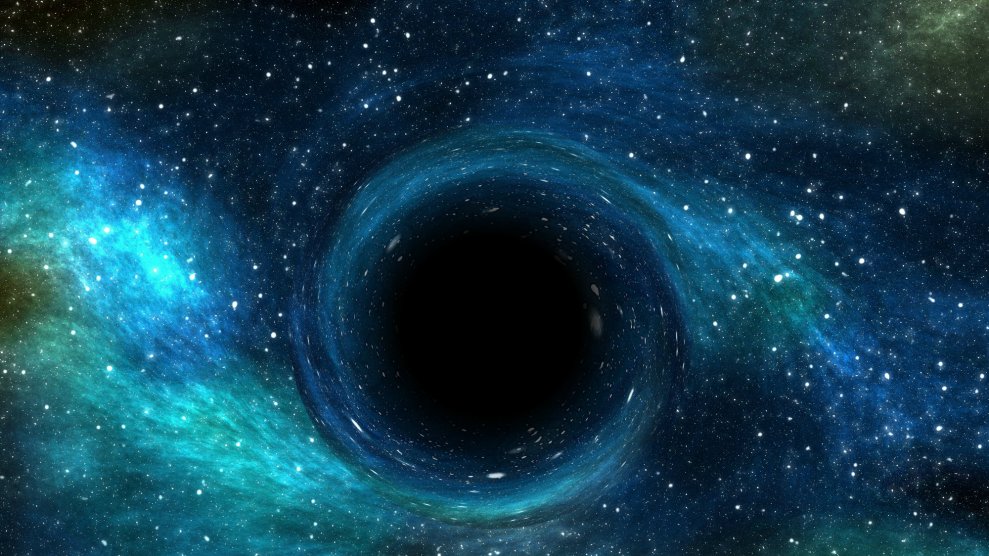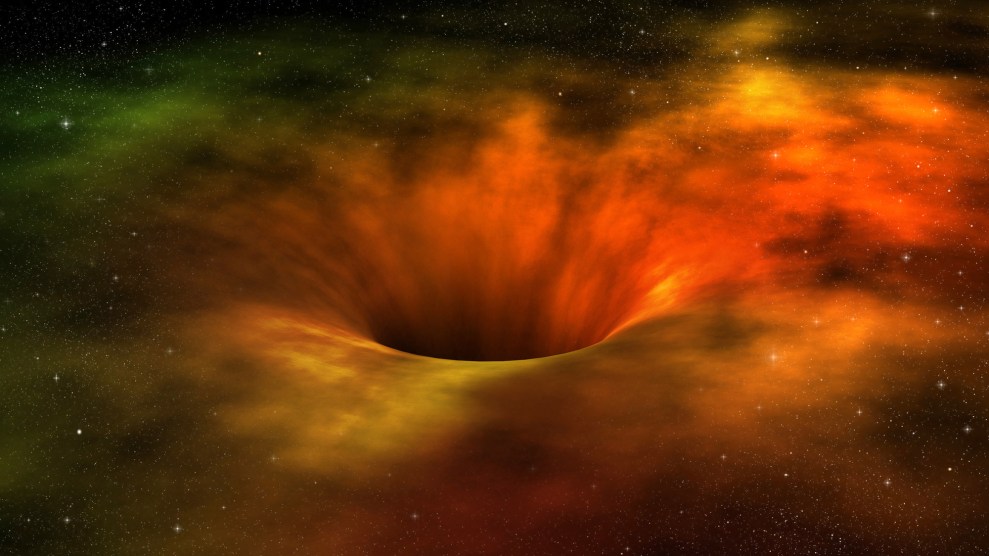
<a href="http://www.shutterstock.com/pic-313063250/stock-photo-black-hole-over-star-field-in-outer-space.html?src=Ia3mrNFJQBywrP9OmZJ69g-1-1">vchal</a>/Shutterstock
When black holes collide, they release a power greater than all the stars shining in the universe. They also make a really big sound. In September 2015, scientists detected the merger of two black holes, an event that took place more than a billion light years away. It produced a whooshing sound picked up by machines designed to detect the activity. You can hear that sound—the hum of gravitational waves produced by the collision—on this week’s episode of the Inquiring Minds podcast.
On Inquiring Minds, Kishore Hari talks with Janna Levin, a professor of physics and astronomy at Barnard College and author of a book on this unlikely discovery of the black hole collision heard round the world.
The discovery was a project decades—and more than $1 billion—in the making. And it was truly groundbreaking. “I sometimes liken it to the first time Galileo pointed the telescope at the sky,” Levin said.
When Albert Einstein came up with his theory of relativity, he posited that gravitational waves ripple across space-time when hit with the force of moving objects such as black holes. The sound picked up by the machines proved Einstein was right.
As Levin pointed out, the remarkable discovery makes other revelations seem possible. When Galileo first set his eyes on the sky, she said, he was looking at Saturn, the moon, and the sun; he could never have predicted the discovery of remote galaxies or objects such as quasars. Centuries later, when a team of physicists went looking for neutron stars, they discovered colliding black holes.
“Who knows what else is out there?” Levin said.
Inquiring Minds is a podcast hosted by neuroscientist and musician Indre Viskontas and Kishore Hari, the director of the Bay Area Science Festival. To catch future shows right when they are released, subscribe to Inquiring Minds via iTunes or RSS. You can follow the show on Twitter at @inquiringshow and like us on Facebook.
















